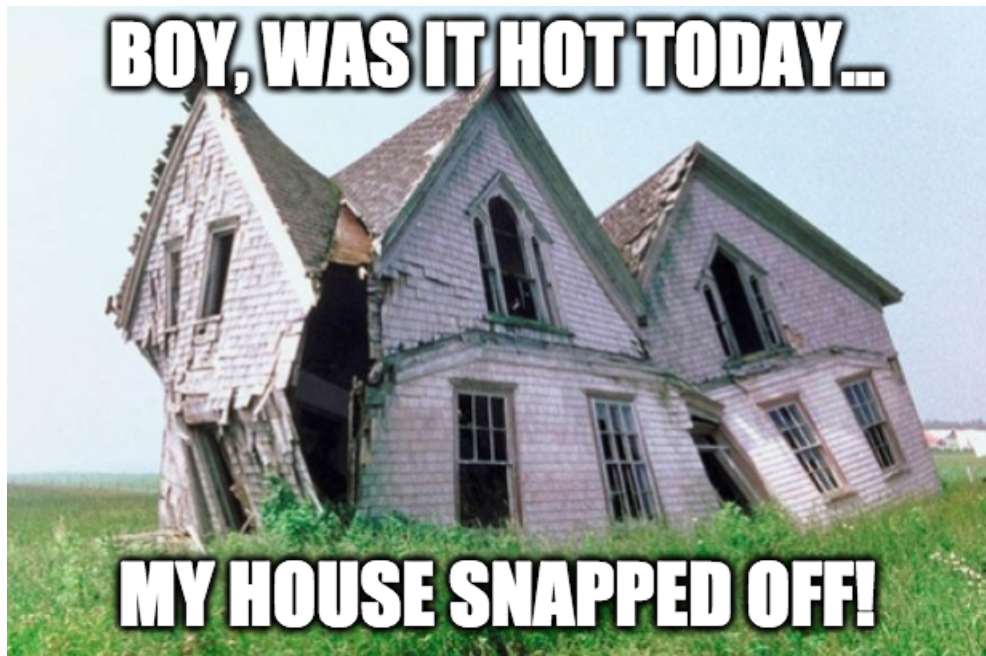Many have said that we need to increase the amount of wind and solar we bring onto the grid, but is that really a long-term solution? Wind and solar can only be modeled as "baseload" at a fraction of their capacity because they are intermittent and only Mother Nature controls how much power they produce at any given point in time. Therefore, we'd need 3 - 4 times as much wind and solar as we expected to use in order to produce a reliable fraction. Also, wind and solar require vast amounts of land to house their sprawling generators. There's a reason we were relying on fossil fuel generators -- because they take up very small amounts of land for the amount of power they produce, and they can produce power when we provide their fuel. We decide when they run and how much they produce.
But this logic doesn't work with green energy policies. Instead of admitting the real problem -- wind and solar aren't reliable sources of electricity -- the green propagandists sell the idea that the reason we don't have a reliable grid is because the weather has become "extreme." Although it's normal for summer temperatures here to average in the 90's, now a day in the 90's causes alerts and warnings to cut usage. We're told the big lie -- that climate change and extreme weather is the cause of electric grid reliability issues. And stupid people believe it.
I guess we should have expected that the utilities have been watching the success of this stupidity and have now adopted extreme weather reasons for their own failures. Check.it.out.
A grass fire near 199th and Lone Elm Olathe was likely caused by a downed power line.
An Evergy representative reports the "excessive heat was likely a contributing factor" to a crossarm breaking, falling and igniting the grass fire.
About 1,900 customers were affected. Their power was restored within an hour of the incident.
You know what does cause crossarms to break? Lack of maintenance. That crossarm had to have other issues, like cracks, warping, or rot, to have fallen. Heat had nothing to do with it and lack of maintenance has everything to do with it. So, why aren't utilities properly maintaining their facilities using preventative maintenance before things break and cause fires or other disasters? Because they're using that money for something else. Let's explain...
Most utilities use what are known as stated rates for their distribution systems. A utility files for a rate (or rate increase) by showing regulators a list of its costs over a certain period of recent history. They call it a "test year." The regulator examines the costs in the "test year" and determines the allowable rate the utility may charge. It will also determine the allowed rate of return for the utility. Utilities are allowed to earn a return on their investment in the infrastructure that serves us. It's in the neighborhood of 10% right now and headed upwards. Once the regulator determines the just and reasonable rate for the utility, it sets the rate at a certain amount per year. The utility receives that amount every year until it files a new rate case at its own initiative. Once the rate is set, the utility can spend the money it receives any way it likes. Nobody is checking. As long as the lights stay on and people don't complain too much, all is well. A utility may spend some of the money in its Maintenance account on other things. Those other things may be bonuses for its executives, lobbying, shoring up its pension plan, or increasing its profits. Anything goes.
Therefore, things like tree trimming or replacement of aging crossarms, transformers, insulators, conductor, towers, and the like may be deferred for another year or two to free up Maintenance dollars that can be used elsewhere. However, if a utility does this too much, eventually the system begins failing and the utility is left playing "catch up" trying to maintain its system before it causes disaster. It's impossible to catch up and eventually the whole system is on the verge of failure.
A damaged crossarm that probably should have been replaced BEFORE it failed has caused a fire. This same scenario has caused many other fires, both big and small. The utilities deal with this by shutting off power when the weather is predicted to be windy so that its rickety, unmaintained system doesn't break and start fires.
This isn't the way to run a utility. We have to insist that utilities open their books to show us that they have actually spent their maintenance money on maintenance. This blame game has now jumped the shark.

 RSS Feed
RSS Feed